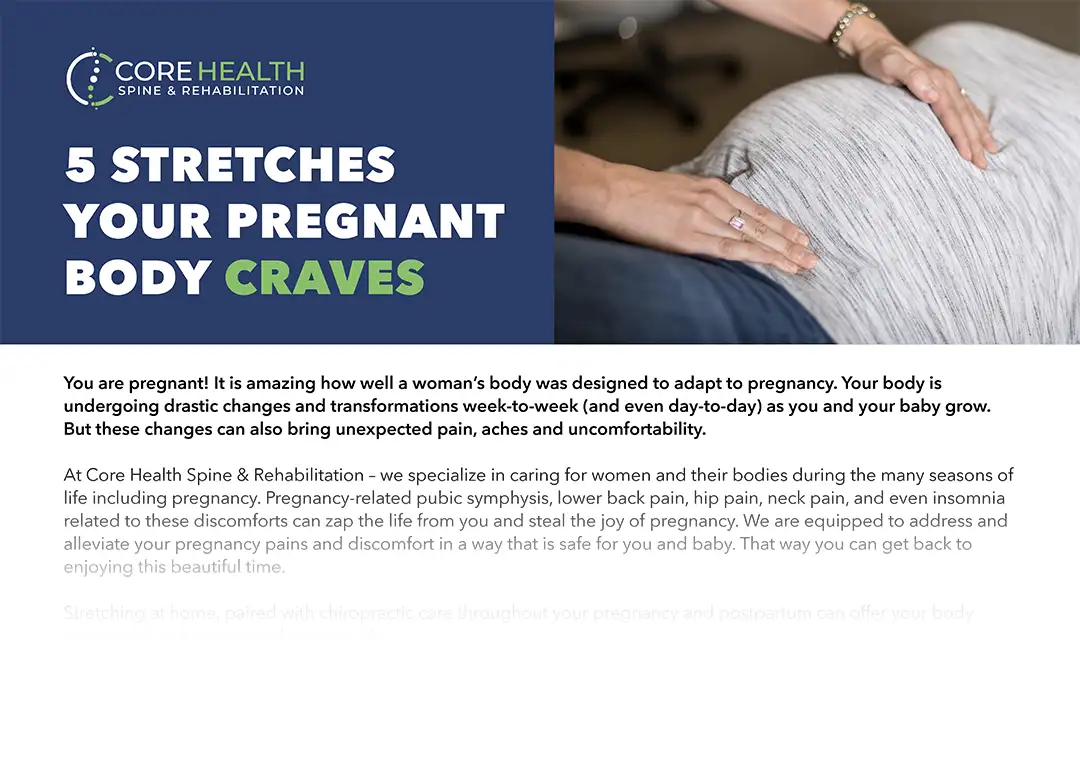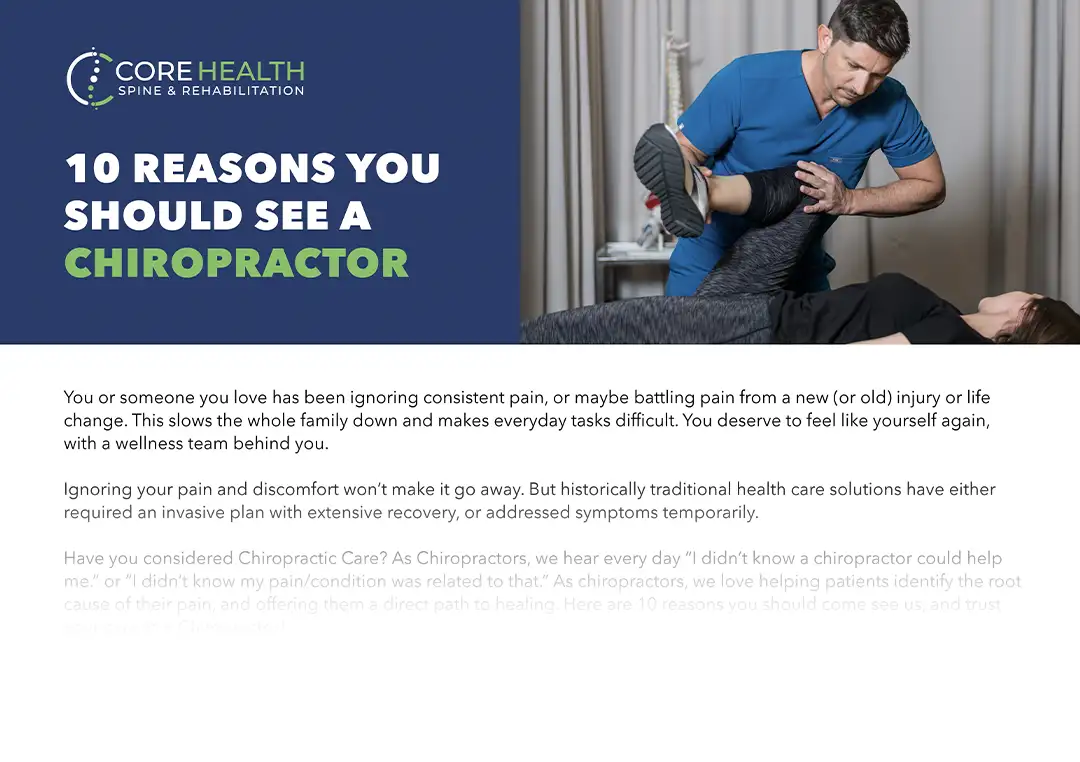Bulging Disks vs. Herniated Disks: Which Condition Is Causing Your Back Pain?
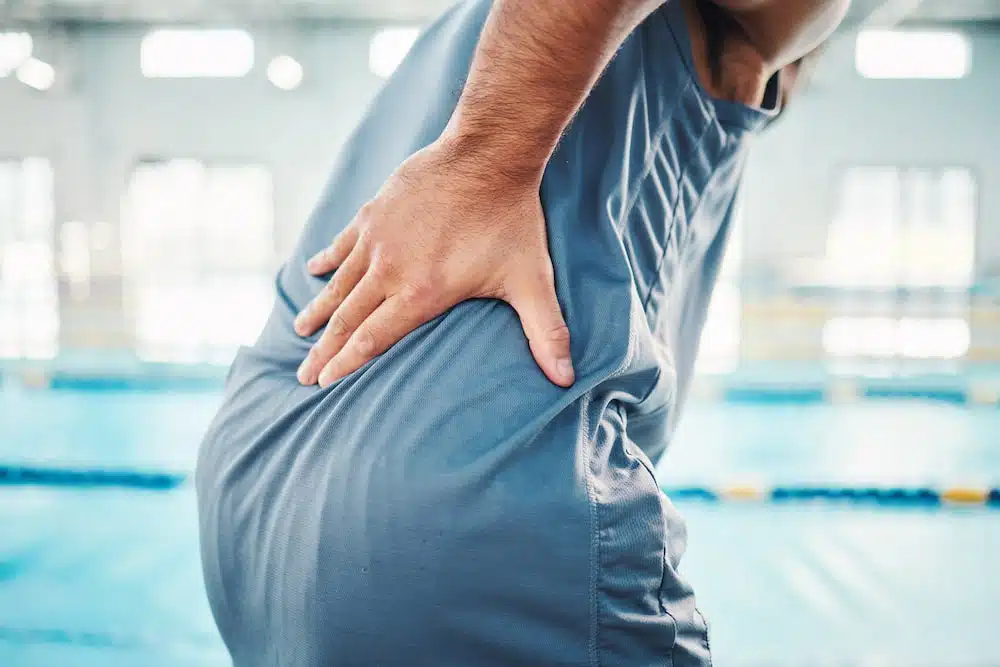
Back pain causes can vary. If you’re experiencing it and have done some research, you've likely encountered the terms “bulging disks” and “herniated disks.” Because they’re related, these conditions are often confused with each other.
What sets them apart, and how can you determine which is the source of your pain? This blog will cover everything you need to know about differentiating between bulging disks vs herniated disks.
Understanding the Spine and Disks
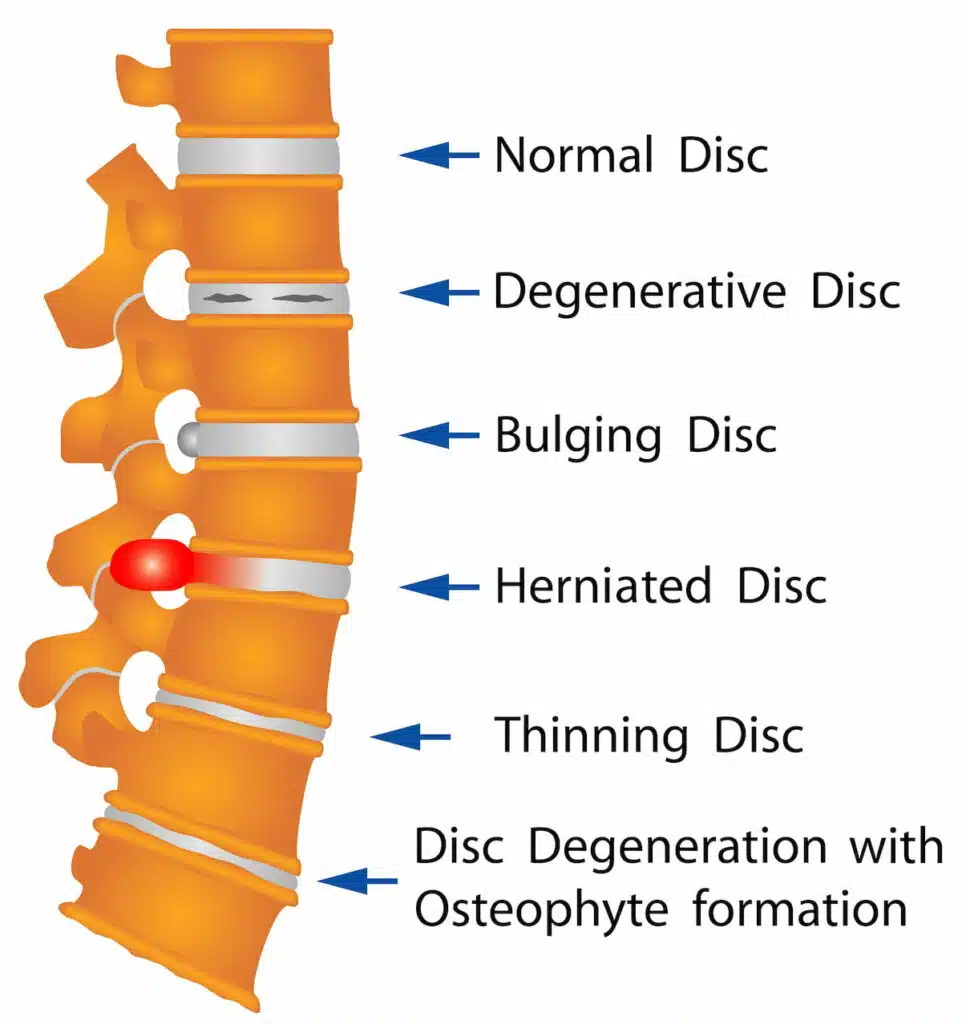
The spine is a complex structure of vertebrae, spinal disks, and nerves that work together to support the body and facilitate movement. The vertebrae protect and support the spinal cord, while the spinal disks serve as shock absorbers to maintain spinal stability and provide the vertebrae with pivotal points for movement.
Each disk consists of two key parts: the tough outer ring, which provides structural support, and the soft jelly-like core, which acts as a shock absorber for the spine.
Your spinal disks are essential to your spine, as they provide support, cushioning, and flexibility, which is crucial for your back health. When disks become damaged, spinal disk conditions like bulging or herniation may occur, leading to discomfort or back pain.
What Is a Bulging Disk?
In a bulging disk, only the tough outer layer of cartilage is typically involved. As disks age, they show signs of wear and tear and become less flexible. When this happens, the outer ring can protrude beyond its normal boundary, hence the term “bulging.”
Causes
A bulging disk is often due to the natural aging process. The disks naturally lose hydration and elasticity over time, making them more susceptible to bulging. Accidents, falls, or heavy lifting injuries can also lead to a bulging disk. Repetitive stress involving activities like twisting, bending, or heavy lifting is also a significant factor, putting pressure on the disks, leading to gradual bulging.
Other factors, such as poor lifestyle choices, genetics, and occupation, can also heighten the risk of developing a bulging disk.
Symptoms
The development of bulging disks is gradual. Initially, the patient may not experience much pain. However, as the condition progresses, symptoms such as localized back pain, leg pain, numbness, and tingling can become more severe, leading the patient to seek a doctor's appointment.
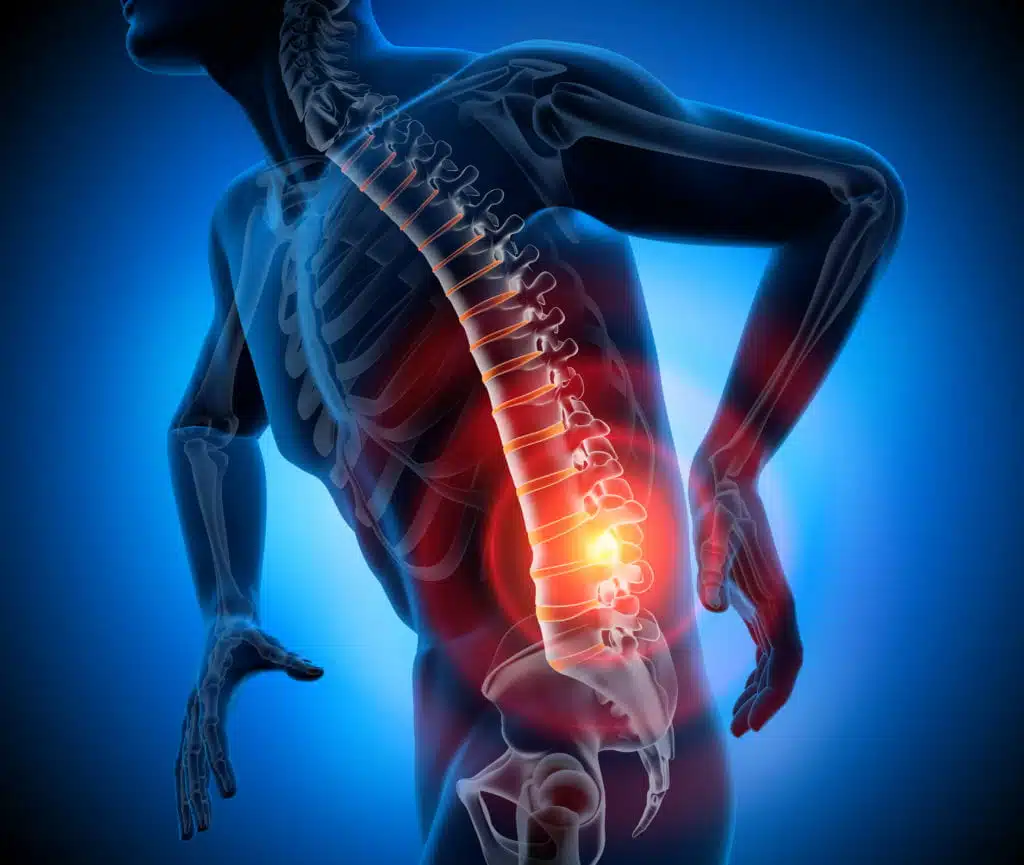
Diagnosis
To diagnose a bulging disk, the healthcare provider starts with a physical exam to assess symptoms, test the range of motion, and check for areas of pain and weakness. Following this, imaging techniques like MRI will be used to obtain a detailed view of the affected disk and confirm the diagnosis.
Treatment Options
Once diagnosed, the healthcare provider will create a treatment plan. In most cases, a bulging disk improves over time, so the initial focus of treatment is usually on managing pain and restoring range of motion.
Based on the severity, nonsurgical options like physical therapy, chiropractic care, massage therapy, acupuncture, medications, and lifestyle adjustments are often effective in treating most bulging disks.
However, if all nonsurgical options have been exhausted and the patient is experiencing symptoms like changes in bladder and bowel function, paralysis from the waist down, or persistent pain lasting for 6 weeks or longer, surgical intervention such as diskectomy or spinal fusion may be recommended by the physician.
What Is a Herniated Disk?
A herniated disk, also known as a slipped disk, occurs when the soft jelly-like center protrudes through the outer ring, causing pressure and resulting in lower back pain.
Causes
A herniated disk often occurs due to a sudden injury or heavy lifting. While lifting can be beneficial, excessive lifting can exert pressure on the intervertebral disks, leading to their rupture. Degenerative disk disease, which is caused by age-related wear and tear, can also result in disk herniation.
Like bulging disks, age is one risk factor for herniated disks. Factors like excessive body weight and improper physical activities can also elevate the risk of developing a herniated disk.
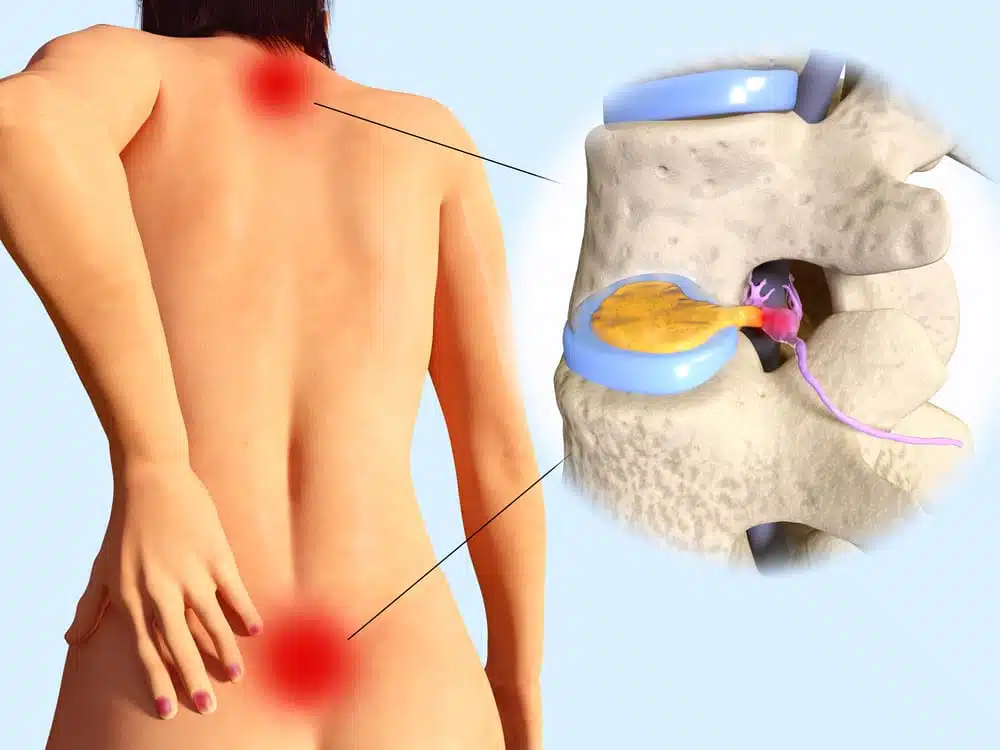
Symptoms
When comparing bulging disks vs herniated disks, herniated disks are more likely to cause pain. This occurs when the inner cartilage of the disk protrudes, irritating the nerve roots and leading to immediate symptoms such as severe back pain, radiating leg pain, and loss of function or sensation.
Diagnosis
The first step in diagnosing a herniated disk is a physical examination. This involves assessing nerve function, muscle strength, range of motion, and reflexes to pinpoint the source of pain and discomfort. If a herniated disk is suspected, an imaging test such as an MRI is conducted to visualize the extent of the herniation, ultimately confirming the diagnosis.
Treatment Options
Surgery is typically unnecessary for relieving symptoms of a herniated disk. Rest, physical therapy, chiropractic care for back pain, massage, acupuncture, medication, and injections can often effectively alleviate back pain.
Surgery is only considered if noninvasive treatments fail to provide relief and if the patient is experiencing severe pain lasting more than 6 weeks, loss of bowel and bladder control, difficulty standing or walking, and numbness and tingling that travels into the legs or feet.
When to Seek Medical Help
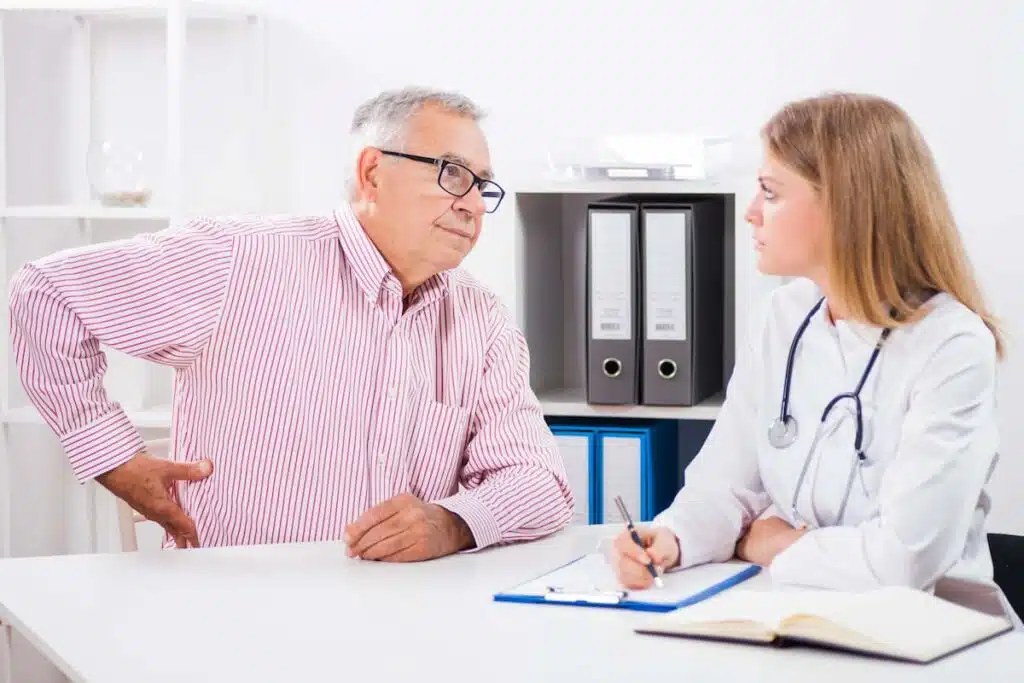
If conservative treatments aren't helping with your herniated or bulging disk and you're experiencing severe pain, limb weakness, or loss of bladder or bowel control, it's time to seek medical help.
Early identification of back pain causes can bring relief, prevent complications, and lead to long-term spinal health, ultimately improving your overall well-being and quality of life.
Takeaway
While bulging disks vs herniated disks are different, their symptoms may be very similar. Generally, herniated disks tend to cause more pain and have a worse prognosis than bulging disks. If you suspect you have one of these conditions, getting an accurate diagnosis is crucial for finding the right treatment.
At Core Health Spine & Rehabilitation, we can help you get the correct diagnosis and provide the proper care for bulging and herniated disks so you can manage your symptoms and get back to living life to the fullest.
Schedule an appointment with us today!

